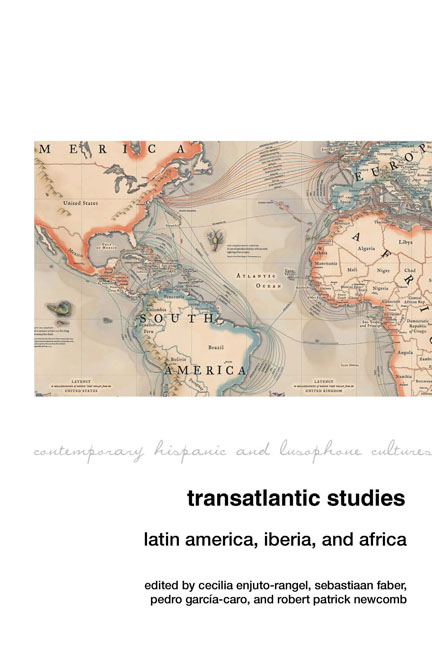Book contents
- Frontmatter
- Contents
- Introduction: Transatlantic Studies: Staking Out the Field
- Transatlantic Methodologies
- Transatlantic Linguistic Debates
- Transatlantic Displacement
- Transatlantic Memory
- Transatlantic Postcolonial Affinities
- Transatlantic Influence
- Epilogue: The Futureâif There Is OneâIs Transatlantic
- Index
29 - The Good Monarchical Government: Popular Translations of Spanish Political Thought during Mexico's Independence
- Frontmatter
- Contents
- Introduction: Transatlantic Studies: Staking Out the Field
- Transatlantic Methodologies
- Transatlantic Linguistic Debates
- Transatlantic Displacement
- Transatlantic Memory
- Transatlantic Postcolonial Affinities
- Transatlantic Influence
- Epilogue: The Futureâif There Is OneâIs Transatlantic
- Index
Summary
One of the most remarkable facts about the reactions to the Spanish monarchy's political crisis—after the abdication of the royal family in May of 1808—was the role of the king in the Spanish-American political imaginary. Antonio Alcalá Galiano wrote that political and social confusion reigned in the Iberian Peninsula, fruit of the proliferation of “las doctrinas más opuestas” [the most contradictory doctrines] and yet, he added, there was little discord. This was precisely because “sonaba un grito repetido o acogido universalmente con gozo” [one heard a cry that was repeated and universally accepted with delight], which was none other than “la bien conocida frase ‘Viva el rey Fernando, la Patria y religión’” [the well-known phrase, “Long live King Fernando, the Patria, and religion”], that was in those times “por doquier repetida, y escrita, y cantada” [repeated, written, and sung everywhere] (1955: 319).
Circumstances were similar in New Spain, which shows—albeit briefly— the communion of political ideas, sentiments, and values in the Hispanic world. Upon hearing the news of the armed uprising of the Spanish people against the Napoleonic army and the subsequent declaration of war with France in the proclamation sent by the Supreme Council of Spain and the Indias (Suprema Junta de España y las Indias), Lucas Alamán observed a “movimiento de entusiasmo universal” [movement of universal enthusiasm] in which people of every Novohispanic province shouted equally—Long live the King, the Patria, and religion!—expressions that, according to Alamán, illustrate “la uniformidad de opinión que hasta entonces todavía había en la totalidad del país” [the uniformity of opinion that until then had existed in all the land] (1942: 169–70).
Faced with the forced absence of the monarch and the power vacuum it produced in the metropolis after the French invasion of the peninsula, in Mexico the town councils (los cabildos civiles) reacted almost en masse with a royalist register, paying tribute and declaring obedience to the king and offering their collaboration. The town hall in Mexico City, for example, spearheaded a movement that proposed to the viceroy, Jose de Iturrigaray, the formation of a Congress made up of representatives from the local cities, the nobility, the clergy, and tribunales superiores. This Congress would assume royal sovereignty and governmental responsibilities for so long as the king was absent (Nava Oteo 1973: 78; Villoro 1984: 43–63; Rodríguez O. 1997: 40–47).
- Type
- Chapter
- Information
- Transatlantic StudiesLatin America, Iberia, and Africa, pp. 361 - 374Publisher: Liverpool University PressPrint publication year: 2019



